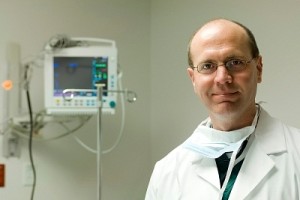Prevention & Wellness: Maintaining Your Health
Do my habits really affect my health?
Yes, very much so. All of the major causes of death (such as cancer, heart disease, stroke, lung disease and injury) can be prevented in part by making healthy lifestyle choices.
Don’t smoke or use tobacco.
Smoking and using tobacco are very dangerous habits. Smoking causes 440,000 deaths in the United States every year. More preventable illnesses (such as emphysema, mouth, throat and lung cancer, and heart disease) are caused by tobacco use than by anything else. The sooner
you quit, the better.
Limit how much alcohol you drink.This means no more than 2 drinks a day for men and 1 drink a day for women. One drink is equal to 1 can of beer (12 ounces), a 4-ounce glass of wine or a jigger (1 ounce) of liquor.
Too much alcohol can damage the liver and contribute to some cancers, such as throat and liver cancer. Alcohol also contributes to deaths from car wrecks, murders and suicides.
Eat healthy.
A healthy diet has many health benefits. Heart disease, certain cancers, stroke, diabetes and damage to your arteries can be linked to what you eat. By making
healthier food choices, you can also lower your cholesterol and lose weight.
Lose weight if you’re overweight.
Many Americans are overweight. Carrying too much weight increases your risk for high blood pressure, high cholesterol, diabetes, heart disease, stroke, certain cancers, gallbladder disease and arthritis in the weight-bearing joints (such as the spine, hips or knees). A
high-fiber, low-fat diet and
regular exercise can help you lose weight and keep it off.
Exercise.Exercise can help prevent heart disease, high blood pressure, diabetes, osteoporosis and depression. It can also help prevent colon cancer, stroke and back injury. You’ll feel better and keep your weight under control if you exercise regularly. Try to exercise for 30 to 60 minutes, 4 to 6 times a week, but remember that any amount of exercise is better than none.
Don’t sunbathe or use tanning booths.
Sun exposure is linked to skin cancer, which is the most common type of cancer in the United States. It’s best to limit sun exposure and wear protective clothing and hats when you are outside. Sunscreen is also very important. It protects your skin and will help prevent skin cancer. Make sure you use sunscreen year round on exposed skin (such as your face and hands). Choose a broad-spectrum sunscreen with at least an SPF 15 and one that blocks both UVA and UVB light.
Practice safe sex.
The safest sex is between 2 people who are only having sex with each other and who don’t have a sexually transmitted infection (STI) or share needles to inject drugs.Use latex condoms and a spermicide (a product that kills sperm) gel or cream. Talk with your doctor about being tested year for STIs.
Keep your shots up to date.
Adults need a tetanus-diphtheria booster every 10 years. Your doctor may substitute one Td booster with Tdap, which also protects you against pertussis (whooping cough). If you’re pregnant and have not had a Tdap shot before, you should be vaccinated during the third trimester of your pregnancy or late in the second trimester. Adults and teens who are in close contact with babies younger than 12 months and who have not received a Tdap shot before should get vaccinated as well.Adults should also get a flu shot each year. Ask your doctor if you need other shots or vaccines.
Make time for breast health.
Breast cancer is one of the most common causes of death for women. Between the ages of 50 and 74, women should have a mammogram every 2 years to screen for breast cancer. Women who have risk factors for breast cancer, such as a family history of breast cancer, may need to have mammograms more often or start having them sooner.
Get regular Pap Smears.
Unless your doctor suggests that you need one more often, you should have Pap smears:
- Every 3 years beginning at 21 years of age and continuing until 65 years of age
- Within 3 years of when you start having sex if you are younger than 21 years of age
- If you are between 30 and 65 years of age and you want to have Pap smears less often, talk to your doctor about combining a Pap smear with human papillomavirus (HPV) testing every 5 years
Certain things put you at higher or lower risk for cervical cancer. Your doctor will consider these when recommending how often you should have a Pap smear.If you’re older than 65 years of age, talk with your doctor about how often you need a Pap smear. If you’ve been having Pap smears regularly and they’ve been normal, you may not need to keep having them.If you’ve had a hysterectomy with removal of your cervix, talk with your doctor about how often you need a Pap smear.If you’ve never had a high-grade precancerous lesion or cervical cancer, ask your doctor how often you need a Pap smear.
Ask your doctor about other cancer screenings.
Adults should ask their doctor about being checked for colorectal cancer starting at age 50. Depending on your risk factors and family medical history, your doctor may want to check for other types of cancer.
Should I have a yearly physical?
Health screenings are replacing the yearly physical. Instead of every person getting the same exams and tests, only the appropriate ones are given. Talk to your family doctor about your risk factors and what tests and exams are right for you.
Make essential health benefits and preventive care services work for you.
Essential health benefits are a set of health care service categories that must be covered by certain plans, beginning in 2014.If you buy a plan through a Health Insurance Marketplace, your insurance will cover the preventive services and at least 10 essential health benefits required by the Affordable Care Act (ACA). All private health insurance plans offered in federally facilitated marketplaces will offer the following 10 essential health benefits:
- Ambulatory patient services (outpatient care you get without being admitted to a hospital)
- Emergency services
- Hospitalization (such as surgery)
- Maternity and newborn care (care before and after your baby is born)
- Mental health and substance use disorder services, including behavioral health treatment (this includes counseling and psychotherapy)
- Prescription drugs
- Rehabilitative and habilitative services and devices (services and devices to help people with injuries, disabilities, or chronic conditions gain or recover mental and physical skills)
- Laboratory services
- Preventive and wellness services and chronic disease management
- Pediatric services
State-run marketplaces will also be required to offer 10 EHBs, but the list of benefits may differ.A preventive service might be a test, or it might be advice from your doctor. Preventive services can detect disease or help prevent illness or other health problems. Some preventive services covered under the Affordable Care Act (ACA) include blood pressure screening, cervical cancer screening, HIV screening, immunizations, and well-woman visits.Beginning in 2015, the ACA will require every health plan to cover all costs associated with preventive services.View a complete list of preventive services covered by insurance plans that meet ACA requirements.
Other Organizations







